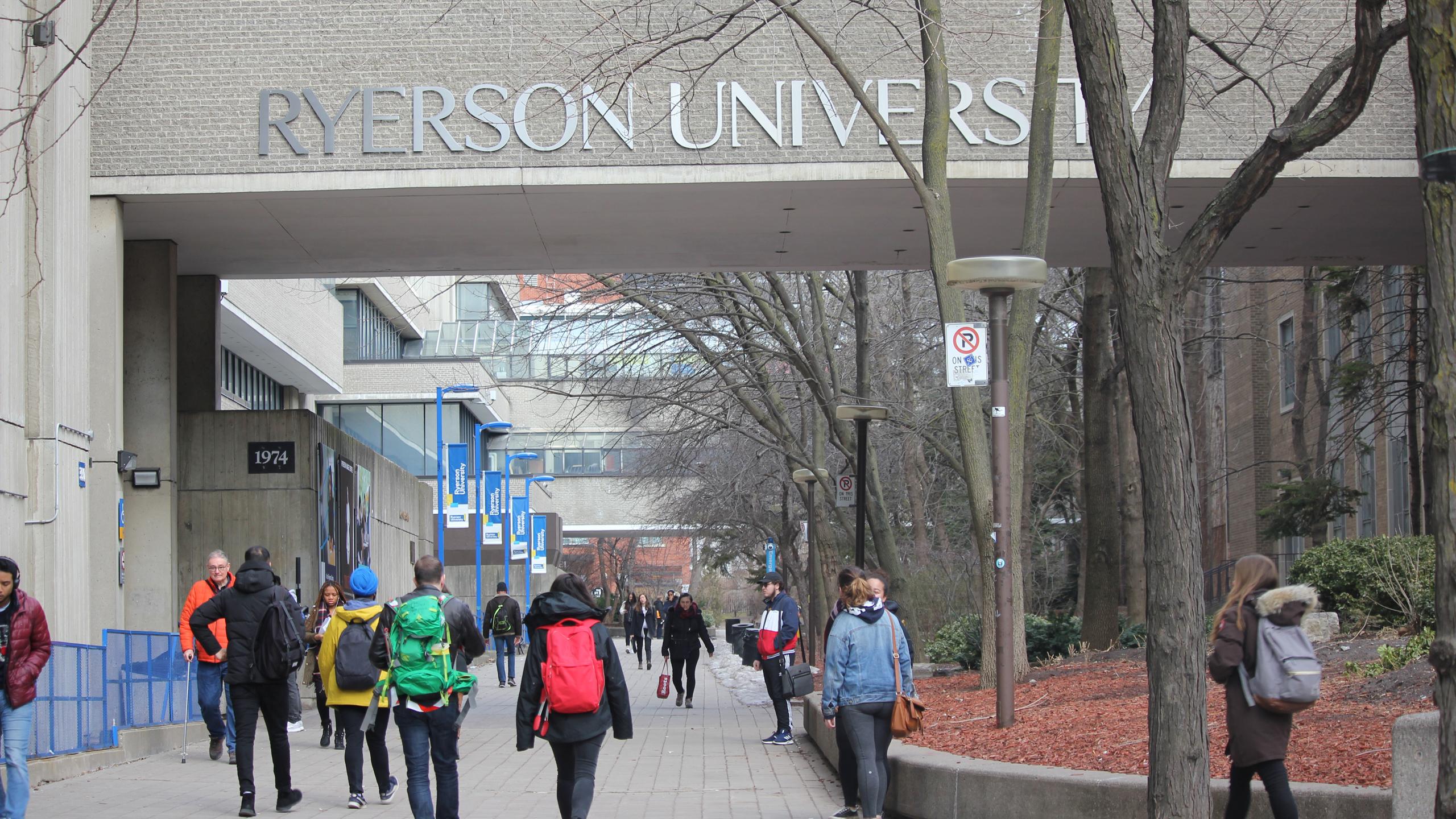By Thea Gribilas and Sarah Tomlinson
A motion to approve the framework for a three per cent tuition increase for out-of-province students starting in the 2022-23 school year was passed at the Board of Governors (BoG) meeting on June 29.
Ryerson president Mohamed Lachemi clarified that the board was not approving the increase itself at this meeting, and was instead approving the framework necessary for ministry approval.
“The practice of charging students out of a province at a different level is not actually new,” said Lachemi. “A number of provinces are already doing that.”
Lachemi added that the grants Ryerson has been receiving from the provincial government have not increased in 10 years, citing it as a contributing factor to the decision.
“We get revenue sources either from tuition fees or from government grants, and if we don’t…do something about it, we will suffer in terms of quality,” said Lachemi.
In response to the announcement, the Continuing Education Students’ Association of X University (CESAX) and the X Graduate Students’ Union (XGSU) denounced the decision in an emailed statement obtained by The Eyeopener.
“As the university receives the same funding for in-province and out-of-province students, there is no fair justification for the university to be raising tuition fees and creating differential tuition fee categories,” the statement reads.
“Students cannot continue to carry the burden of the government’s cuts to education in ever-increasing tuition fees,” CESAX and XGSU said. “Students have called for a tuition reduction—not a tuition increase.”
Discussions on the tuition increase are expected to be finalized during talks for the university’s budget for the 2021-22 fiscal year.
Here’s what else you missed at the June BoG meeting:
Vaccinations for students coming to campus
Ryerson’s legal counsel has advised the university against mandating that students, staff and faculty living off-campus get vaccinated for COVID-19 to come to campus.
“Our legal advisors…[say we] should not do it unless there is a regulation by the government,” said Lachemi.
Lachemi added it is likely that students living in residence will be required to get vaccinated in order to come into residence.
When asked about incorporating incentives for students to get vaccinated, like gaining access to the university’s gym facilities, Lachemi said he’s been working closely with Ontario’s chief medical officer of health, Dr. Kieran Moore, about how to proceed.
Although Ryerson’s vaccination clinic in the Daphne Cockwell Complex (DCC) won’t be open in the fall, Lachemi said Ryerson’s clinical team will continue to support the community when they need vaccines.
Equity and community inclusion
Denise O’Neil Green, vice-president, equity and community inclusion, announced three projects aimed at fostering a more inclusive environment for students.
The first project aims to confront anti-Black racism on campus. She said the university has hired an education and awareness facilitator with a focus on anti-Black racism for the initiative.
There is also an unnamed room in Kerr Hall west that has been dedicated as a Black student lounge space.
The second project was the first-ever student diversity report which aimed to “empower campus partners to increase educational access and retention.”
The third project is a university-wide equity, diversity and inclusion strategic action plan called, “Toward Inclusive Education at Ryerson.”
The plan focuses on giving students access to groups focused on equity and inclusion. It also provides a baseline for Ryerson to measure their progress on diversity for each undergraduate and graduate program in the form of a report card.
Convocation update
In June, Ryerson held its second virtual convocation.
Lachemi reiterated that all 2020 and spring 2021 graduates will be given the opportunity to attend an in-person convocation once restrictions allow it.
New FCS dean
Kiaras Gharabaghi has been named the new Faculty of Community Services (FCS) dean. His term will begin on Aug. 9.
Gharabaghi has been with Ryerson since 2006 and was named chair of the School of Child and Youth Care in 2014.












Amanda Lang
Out-of-province students have to pay more because they predominantly don’t have friends and family to live with while at Ryerson, they’re moving to one of the most expensive cities on the planet, and the majority of bursaries and awards are directed at students who attended high school in Ontario. Now the university wants to charge them extra just because they aren’t Ontarians?
A search on the Canadian Information Centre for International Credentials’ website lists 296 post-secondary institutions in Ontario, compared to 317 in ALL the other provinces and territories COMBINED. So most of the educational opportunities are centered in Ontario, which is already a barrier to education for students all across the country, and Ryerson is choosing to increase that barrier. Classy move. Way to tell every other Canadian you don’t really want them.